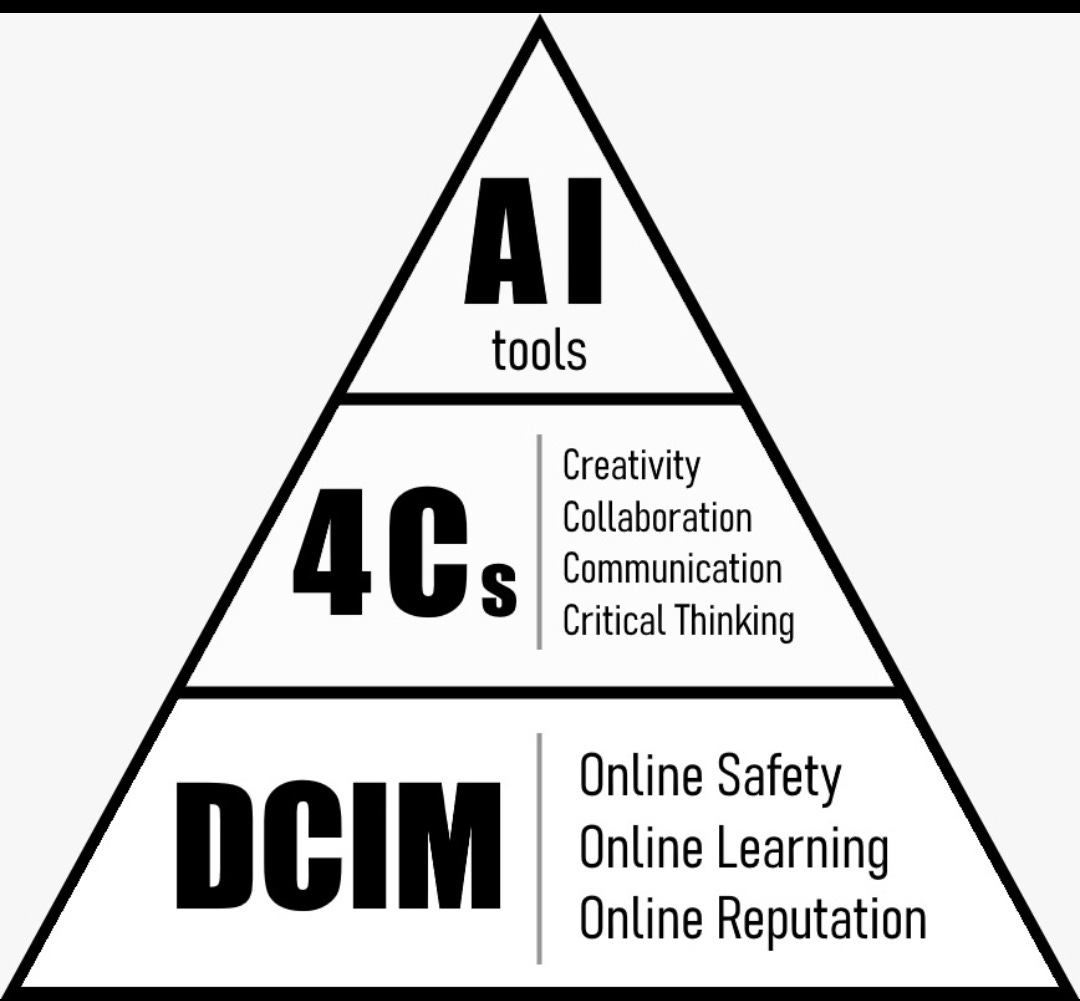AI this. AI that.
Will AI kill jobs?
Hello dear reader,
I am back.
For those who keep asking - I am not shutting this newsletter. I only write when I am curious about a topic. Really curious. So, I might be sporadic, but am definitely around.
*
So, what has made me curious this time? Well, the conversation around AI being a beast that will reduce us humans to lesser mortals. I mean in many ways, we are lesser mortals already, but is AI really, ‘that monster?’
I had to figure it out. Turns out, AI is less dangerous than us humans - although it might seem like AI is eating the world and our jobs. In this piece we talk about how AI and Humans will coexist and maybe make many things easier - only if we use it well.
At an individual level, here is what it will mean:
Careers will become liquid - it won’t be a single industry anymore and you will have to multitask 5x
Imagine you have your own AI team
JDs will obviously change, maybe they won’t exist.
Let me stop here. Read the piece and drop your feedback.
See you soon.
**
The future as we know it is in the present. Observe and you will notice people living in their own versions of the future without their knowledge. Currently, I sit with a team of hard core engineers and data scientists. They are building products with LLMs and that is their present. Honestly, before this, if someone spoke to me of AI building blocks, I would n’t even pretend to know something about large language models, machine learning, large action models, AI agents or anything beyond Midjourney or ChatGPT. Earlier, I prided myself on my AI ‘awareness’’ as I knew the terms OpenAI, Sam Altman, Generative AI and maybe shared the common belief ‘that AI is here as that large giant that will acquire all our knowledge and reduce us to lesser mortals who can no longer trust their own sensibilities’. Artificial intelligence was here to get us. That belief is now gradually evolving.
‘AI is about small steps, not gigantic ones’
AI will be a steep change in organisation velocity and productivity, no doubt. But that will happen through small steps, not moonshots. It will actually help to be less ambitious when starting out with AI transformation and take meaningful steps towards increasing velocity and throughput.
It will happen through strategic choices around which functions to automate with AI. From my conversations with founders building in the AI space, it is evident that the focus will first be on tasks where AI can add significant value even at relatively low-performance levels. Rather than magical applications, businesses will probably benefit from back-office work being automated first.
AI automation efforts will be perfect for areas where:
The value of automation is high (relaxes other high-value bottlenecks)
The consequences of failure are low
The performance requirements will be achievable with ~20 points of IQ current foundational models have
Use cases that ‘move the needle’ on business outcomes
Aakash Dharmadhikari, is the Cofounder of realfast, a company building AI transformation for IT services. Earlier, Aakash held several senior product and engineering roles with Gojek, Southeast Asia’s leading super-app, including being its Chief Product Officer. According to him, “AI will create ‘career liquidity’”- imagine you have a certain number of hard skills, AI can help you augment them by at least 5x. Earlier, in the boomer-era, people had single careers for life, currently pivoting is the order of the day, soon, careers will be liquid. A single person can represent atleast 2-3 sectors and multiple roles within the sector. Therefore, organisations might also have to think about how their roles are defined or may not need definitions at all (as long as tasks and outputs are well defined). ‘We are mostly heading towards humans using AI as a tool that can only help them do more.’ Further, one does not only have to be an engineer, as some of the hard skill sets can also be acquired/ learned.
Microsoft’s recent workforce survey (of over 31,000 people across 31 countries) shows that as of May, 75% of employees surveyed are using gen AI in their daily work — a figure that has nearly doubled since January — and 78% of those workers reported that they adopted these tools independently.
Nishant Singh is an AI enthusiast working with the global marketing team at TCS. As a marketer, he deals with a lot of content and data and AI tools have helped him simplify his work of social listening. In addition to that, Nishant has been building his own AI products using the site There is an AI for that which helps find the right AI tool required for a certain task. The site helps you build videos, write SEO content, gives you content ideas, summarise text, code, transcribe, design images and much more. According to Nishant, who took up an AI education paid course, ‘working and building with AI is much more efficient than ‘studying’ it per se’. AI is one of the only compute platforms that can speak to you and also nudge you towards asking the right questions. As per Nishant and his building experience, prompting will become ubiquitous and all of us will eventually have to play around with it.
Being ‘AI ready’ will matter for both individuals and institutions alike
Just like the internet has been an enabler and catalyst, of course with a double edged sword, the same analogy can also be applied to AI. The only difference is that AI has proliferated much faster than expected and has taken the human mind some time to completely absorb and react to its impact.
iMature is an organisation that works in the space of digital citizenship and internet maturity (DCIM). Its Founder, Raghu Pandey has been in the field of edtech for over sixteen years especially to make the internet a safe place for teenagers. He believes that the one reality we have to accept is that in the near future, we will have liquid careers and might have to be prepared to keep upskilling, and hence what will be important is our capability to learn.
Raghu and his team have developed a strategy to tackle exactly that - preparing for job liquidity and change. Watch the video here.
Bottom: Internet maturity, skill development
Middle: Understand market evolution (example: what is the next big deal to learn online)
Top: Preparing ourselves for the best case scenarios presented by AI
The 4Cs are the basis of learning any of the skills - especially creativity is required to be a creative thinker (creativity is not only about art - it is about how you assess a certain problem). A framework to think about jobs is to design careers around problems and not industries, might continue to make one employable and coexist with AI.
Having said that, the struggle to adjust is real. The next 4-5 years might be excruciating across professions as they understand and adapt to AI. This is further propelled by the fact that colleges and universities are yet to include an AI curriculum despite the push by the National Education Policy 2020.
Overcoming these teething issues might just about change the order of work -
JDs will have to be rewritten
Humans might have their personal assistants
The way certain tasks are performed might just be fully transformed and more…
Humans and AI coexistence is inevitable and desirable. Infact, from what I have observed, it is the monotonous tasks that are being automated first to be able to give humans more cerebral work. Therefore, to think that AI might just about wash us out might be premature and also incorrect. With AI, a lot of this tedious and repetitive work that's bottlenecking the value-creating work will be done away with. The conversation around AI and jobs often gets oversimplified into a binary of "jobs that will exist" vs "jobs that will be automated away". However, the discussion and complex and this is certainly not the conclusion:
"AI will make jobs disappear overnight".
The fact is this - we have to be prepared for a future where AI is an enhancement/ augmentation tool to what we do and therefore the creativity/ challenge will lie in how we use it to our benefit as an individual and how we can train it and get it to do certain high end tasks efficiently as a business. Looking at it this way, the opportunities have just opened up.*
* This does not mean that challenges will not crop up - people are already speaking of the double edged sword - like data issues, confidentiality, trust and ethics - however, organisations like iMature and many others across the world are addressing these well within the grassroots by educating teenagers and students about the harmful effects of AI (just like they did with the internet). This issue will continue to be monitored and will continue to evolve as more people learn the rules of the game.
***



